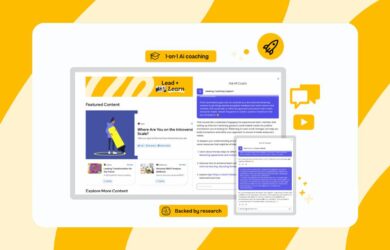In this post, People Alchemy founder Paul Matthews looks at how we can combine conscious and unconscious tasks to be truly productive.
Can you really multitask efficiently?
There are many people who swear that they can, and just as many studies that say they are fooling themselves, and that efficient multitasking is impossible. So what is the truth of it?
First, we need to take a look at what we mean by “multitasking.” The idea arose in the world of computing, where a computer that’s designed to multitask can run more than one program at the same time. For example, it can be running a backup task at the same time that you are writing a document.
From a tasking point of view, the way our human minds work is surprisingly similar to the way a computer works. The computer runs an extra program to manage the multitasking. It switches the central processing unit from one task to another, depending on the priority that has been assigned to a particular task and its current need based on what the user is doing. So in reality, it’s not really multitasking but task switching, done in a way that means the user doesn’t usually notice. It does become noticeable when the computer is asked to do too many demanding tasks in relation to its power. The computer slows down, and could even freeze.
Our human minds are, of course, vastly more complex than the simple desktop computer with a single core central processing unit. But they still cope with multitasking in a similar way, albeit at two different levels. It’s almost as if we have two cores in our central processing unit, in our mind. One core is our powerful subconscious mind, and the other is our conscious mind.
Our subconscious mind does a huge array of tasks that we are completely unaware of, from digesting our food to breathing, to making the wax in our ears. We can also assign tasks to our subconscious mind that we have practiced a lot. These are tasks like walking, driving, opening a door, and tying our shoelaces. However, if any of these tasks run into some kind of “exception condition,” like an unexpected knot in our shoelace, we need to shift the task into our conscious mind to deal with it.
In some sense, we are always multitasking, since our subconscious mind is always handling multiple tasks to keep us alive and keep us moving, without us having to think consciously about every single little thing that we do.
Generally, when people talk about multitasking, they mean the kinds of tasks that must take place within the conscious part of our mind. However, this is complicated by the fact that very few tasks that we do are entirely conscious. Some of the task is always shunted to our subconscious, and how much we can shunt depends on our familiarity with it and how practiced we are at it.
When we’re trying to do more than one thing with our conscious mind, we do the same kind of task switching that the desktop computer must do to accomplish multitasking. That is, we are not parallel processing, we are sequentially processing. In a sense, we only have one focus, so any task that requires our focus makes full use of all of our conscious mind. To do another task requiring conscious thinking, we must switch to it.
This task switching plays havoc with our ability to do either task effectively:
- Our total productivity can be reduced by up to 40 percent.
- We suffer an IQ drop of around 10 points.
- We are very poor at retaining new information while multitasking.
- We make many more errors than if we do the same tasks with all of our focus.
But, some people do claim that they can multitask effectively. Often they are talking about switching tasks every few minutes rather than every few seconds, or some of the tasks they are doing have been largely assigned to their subconscious. The other interesting research finding is that they are wrong in their estimation of their abilities to multitask. Multitaskers typically think they are more effective than is actually the case.
Having said that, we are all different, and your ability to multitask across both your subconscious and conscious minds will vary. The secret is knowing which tasks require your complete focus, and which tasks you could do alongside others. The only way to really discover this is to run some tests on yourself. First do a task with your full focus and then repeat it in a multitasking setting, and look at the results.
Have you fallen for the multitasking myth?
Find out more in Mind Tools’ own article on Multitasking. And take a moment to check: are you suffering from Hurry Sickness? Share your own thoughts and experiences, below.





Comments
Rebel says
9 years agoI definitely achieve best results if I give full attention to the thing I'm busy with. I deliver better quality faster - which means I can do bigger quantities too. Great post!